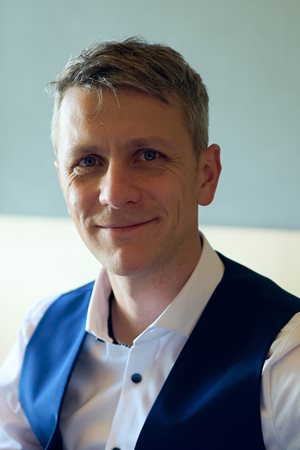The Professional Journey of Michael Baumgartl, member of the ROSQ Committee
My name is Michael Baumgartl. Currently, I am working as a registered medical physicist at the University Hospital Zurich’s clinic for radiation oncology. In my early years, after I finished secondary school, I completed an apprenticeship to become an aircraft mechanic in manufacturing. Safety and quality were the key indicators for safe aviation travel. Ensuring safety and quality will continue to be of great importance during my professional career. After I studied physics at the University of Munich with a detour via France for a student exchange programme and to complete a Master’s thesis, I began work as a medical physicist in Switzerland. So having been born in Germany and having spent time living in France, the German-speaking part of Switzerland is where I live now, and this has brought great personal and professional satisfaction. It is great to live in a country with four official languages and many more spoken locally in my neighbourhood and in our international workplace, which contains radiation therapy experts from all over the world.
I have been a member of the Radiation Oncology Safety and Quality Committee (ROSQC) since 2022. Both within this multidisciplinary group and beyond – through international collaboration – the focus on safety and quality has been enhanced in the radiation therapy community throughout Europe. I believe that cancer patients deserve the highest standards of care, safety and quality in their treatment while those who work in the sector similarly deserve safe working environments.
Professionally, my focus over the last couple of years in my institution has been on safety, quality and security of highly sealed radioactive sources in brachytherapy and MR-guided radiotherapy. Working with such complex treatment modalities requires comprehensive quality-assurance programmes, safety protocols, standardised processes, and constant teaching of the next generation of radiation therapy experts to reach a certain level of safety, quality and security. Continuous education is a top priority to maintain such a level. Furthermore, with the support of my employer, I had the opportunity to close knowledge gaps in the field of brachytherapy with external and internal on-site training and courses run in close collaboration with the International Atomic Energy Agency. These educational opportunities are necessary to either enhance existing services or to implement new brachytherapy programmes. Many countries in Europe have the privilege of high-quality cancer treatment, but this is not the norm globally, as the vast majority of countries struggle to provide affordable, basic healthcare. The knowledge-sharing potential within ESTRO and the ROSQC specifically should be exploited and channelled to address inequities in cancer care so that treatment outcomes and patient well-being are enhanced all over the world!

Michael Baumgartl
Department of Radiation Oncology, University Hospital Zurich, University of Zurich, Zurich, Switzerland